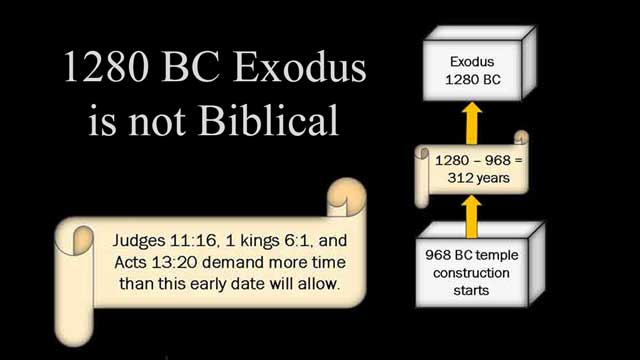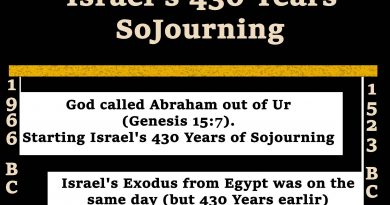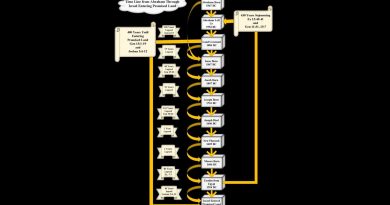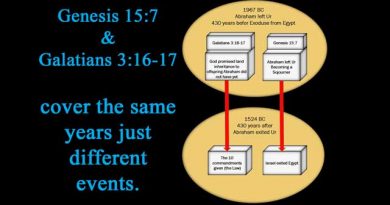1280 BC Exodus Date
Some scholars place the Exodus around 1280 BC. The primary reason is that Israel lived in a city called Pi-Ramesses. The argument claims that the city was constructed in 1280 BC. Therefore, the Exodus from that city could not happen until after its construction.
The Bible tells us that Israel built and left from the city of Pi-Ramesses. However, it does not mean that they built and left the exact city constructed in 1280 BC. The city of Pi-Ramesses was built over the site of Avaris, a city destroyed in 1524 BC. Since both towns are located at the exact location, one could call it by either name: Pi-Ramesses or Avaris. So, depending upon what one believes about the name of the city that the Children of Israel left will determine if they believe the event happened before or after 1280 BC.
A 1280 BC Exodus’ viability can be determined by comparing it to the known date of the temple construction. First, one must subtract the proposed Exodus date, 1280 BC, from 966 BC, when temple construction started, giving the time between the events. The calculation shows that a minimum of 314 years separated the Exodus date of 1280 BC from the beginning of the temple construction. These 314 years include 40 years in the wilderness, 40 years for King Saul, 40 years for King David, and four years for the beginning of the temple’s construction under King Solomon. Once the stated times are subtracted from 314 years, 190 years are left for the judges, spanning Joshua to Samuel.
Three scriptural time restraints cast uncertainty on the 1280 BC Exodus date.
The first restraint to evaluate 1280 BC against will be 1 Kings 6:1. This verse requires 480 years between the start of the temple construction and the Exodus from Egypt. Since 480 years is longer than 314 years, this creates a problem. The date 1280 BC does not account for some 166 extra years mentioned in 1 Kings 6:1.
The second restraint is mentioned in Acts 13:20, where Luke tells us that Israel was given the Judges for about 450 years. This presents the same problem since 1280 BC only allows for 190 years for the Judges. Acts 13:20 shows that the 1280 BC date is not viable.
The third restraint is mentioned in Judges 11:26, stating that some 300 years passed between the conquest of the Promised Land up to Jephthah. Since 300 years is still greater than the 190 years for the Judges, there is no way the Exodus date of 1280 BC is viable.
Three Scriptures, 1 Kings 6:1, Acts 13:20, and Judges 11:26, show no way an Exodus date of 1280 BC is viable.




